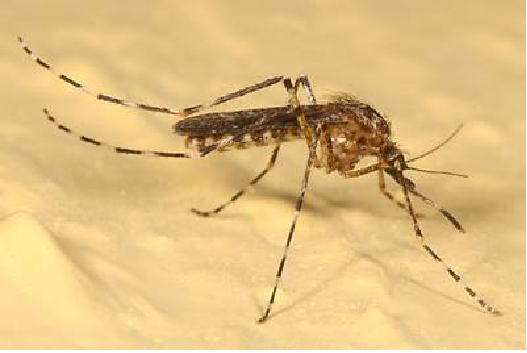Community
Massachusetts Department of Health confirms first case of EEE

BOSTON — The Massachusetts Department of Public Health (DPH) today announced that laboratory testing confirmed the first case of Eastern Equine Encephalitis (EEE) virus infection, in a male over 60 from southern Plymouth County. This is the first human case of EEE in Massachusetts since 2013. The risk level in nine communities has been raised to critical as a result.
“Today’s news is evidence of the significant risk from EEE and we are asking residents to take this risk very seriously,” said Public Health Commissioner Monica Bharel, MD, MPH. “We will continue to monitor this situation and the impacted communities.”
The nine communities now at critical risk are Carver, Lakeville, Marion, Middleborough, Rochester, and Wareham in Plymouth County and Acushnet, Freetown, and New Bedford in Bristol County.
This week DPH and the Massachusetts Department of Agricultural Resources (MDAR) announced they would be conducting and monitoring aerial spraying in specific areas of Bristol and Plymouth counties to reduce the mosquito population and public health risk. Aerial spraying began August 8 and is expected to continue throughout the weekend during evening and overnight hours.
The spray map is located here.
Although the scheduled aerial spray is designed to help reduce the risk of EEE throughout the area, residents are reminded that they should use mosquito repellent and consider staying indoors during the dusk to dawn hours to reduce exposure to mosquitoes.
In addition to the nine communities now at critical risk, 15 communities in southeastern Massachusetts have been determined by DPH to be at high risk for the EEE virus and 18 at moderate risk.
DPH is collaborating with MDAR on the aerial spray, with local communities to educate the public on their risk and risk-reduction strategies, and the Mosquito Control Projects to coordinate surveillance and response activities.
EEE is a rare but serious and potentially fatal disease that can affect people of all ages. EEE occurs sporadically in Massachusetts with the most recent outbreak years occurring from 2004-2006 and 2010-2012. There were 22 human cases of EEE infection during those two outbreak periods with 14 cases occurring among residents of Bristol and Plymouth Counties.
EEE virus has been found in 227 mosquito samples this year, many of them from species of mosquitoes capable of spreading the virus to people.
People have an important role to play in protecting themselves and their loved ones from illnesses caused by mosquitoes.
Avoid Mosquito Bites
Apply Insect Repellent when Outdoors. Use a repellent with an EPA-registered ingredient (DEET (N, N-diethyl-m-toluamide), permethrin, picaridin (KBR 3023), oil of lemon eucalyptus [p-methane 3, 8-diol (PMD)] or IR3535) according to the instructions on the product label. DEET products should not be used on infants under two months of age and should be used in concentrations of 30% or less on older children. Oil of lemon eucalyptus should not be used on children under three years of age.
Be Aware of Peak Mosquito Hours. The hours from dusk to dawn are peak biting times for many mosquitoes. Consider rescheduling outdoor activities that occur during evening or early morning in areas of high risk.
Clothing Can Help Reduce Mosquito Bites. Wearing long-sleeves, long pants and socks when outdoors will help keep mosquitoes away from your skin.
Mosquito-Proof Your Home
Drain Standing Water. Mosquitoes lay their eggs in standing water. Limit the number of places around your home for mosquitoes to breed by either draining or discarding items that hold water. Check rain gutters and drains. Empty any unused flowerpots and wading pools, and change the water in birdbaths frequently.
Install or Repair Screens. Keep mosquitoes outside by having tightly-fitting screens on all of your windows and doors.
Protect Your Animals
Animal owners should reduce potential mosquito breeding sites on their property by eliminating standing water from containers such as buckets, tires, and wading pools – especially after heavy rains. Water troughs provide excellent mosquito breeding habitats and should be flushed out at least once a week during the summer months to reduce mosquitoes near paddock areas. Horse owners should keep horses in indoor stalls at night to reduce their risk of exposure to mosquitoes. Owners should also speak with their veterinarian about mosquito repellents approved for use in animals and vaccinations to prevent WNV and EEE. If an animal is suspected of having WNV or EEE, owners are required to report to DAR, Division of Animal Health by calling 617-626-1795 and to the Department of Public Health (DPH) by calling 617-983-6800.
-

 Community7 years ago
Community7 years agoNational Shrine of La Salette Festival of Lights 2017 set to begin
-

 Community6 years ago
Community6 years agoMassachusetts State Police looking for good home for retired dogs
-

 Crime6 years ago
Crime6 years agoFall River ranked most dangerous city in Massachusetts according to report
-

 latest7 years ago
latest7 years agoDurfee student allegedly overdoses on marijuana
-

 Community6 years ago
Community6 years agoVideo of Fall River Police goes viral
-

 Causes6 years ago
Causes6 years agoMissing Fall River woman found deceased
-

 Crime6 years ago
Crime6 years agoFall River Police add names to most wanted list
-

 Causes6 years ago
Causes6 years agoFall River teenager reported missing has been found




